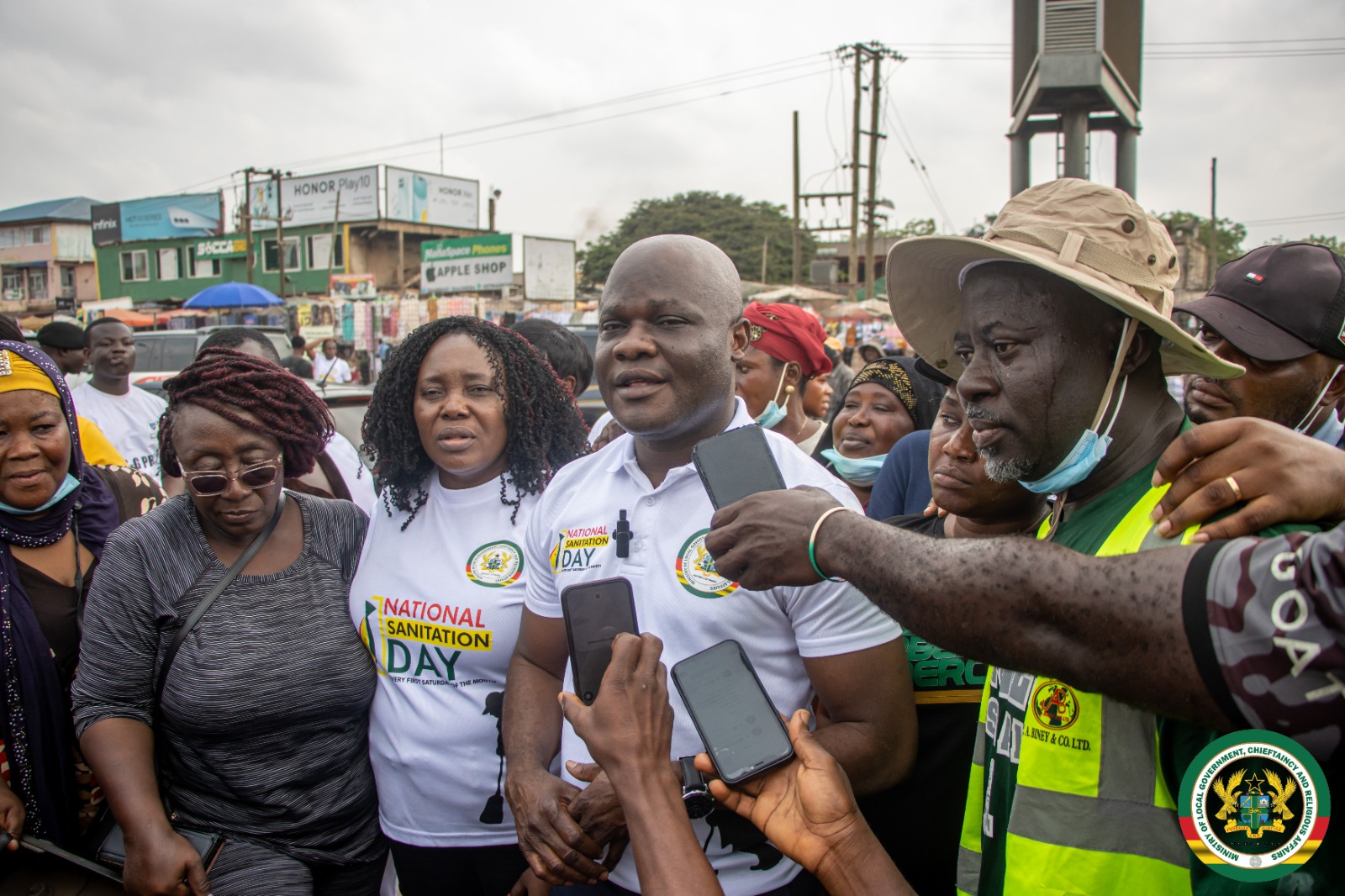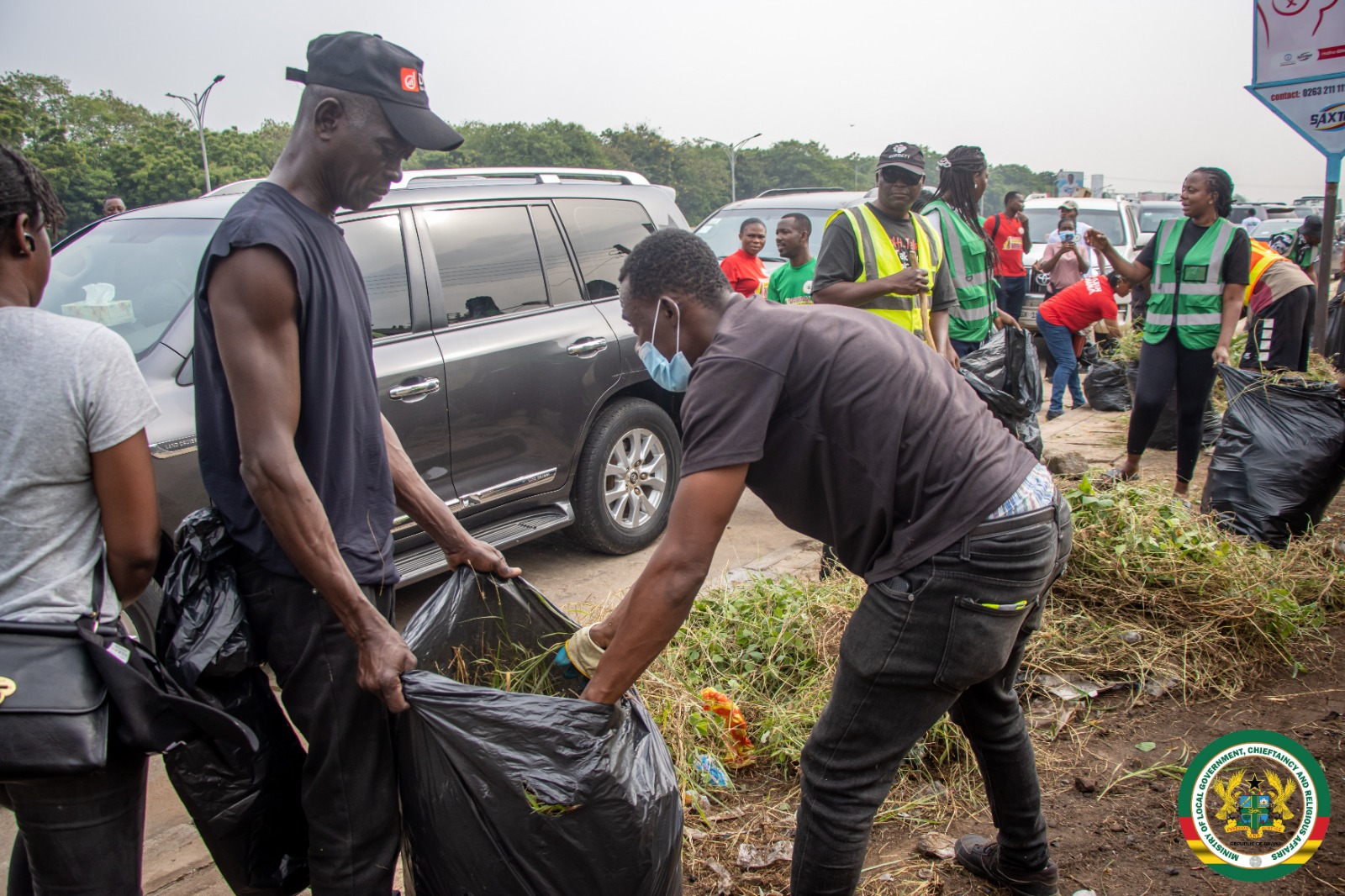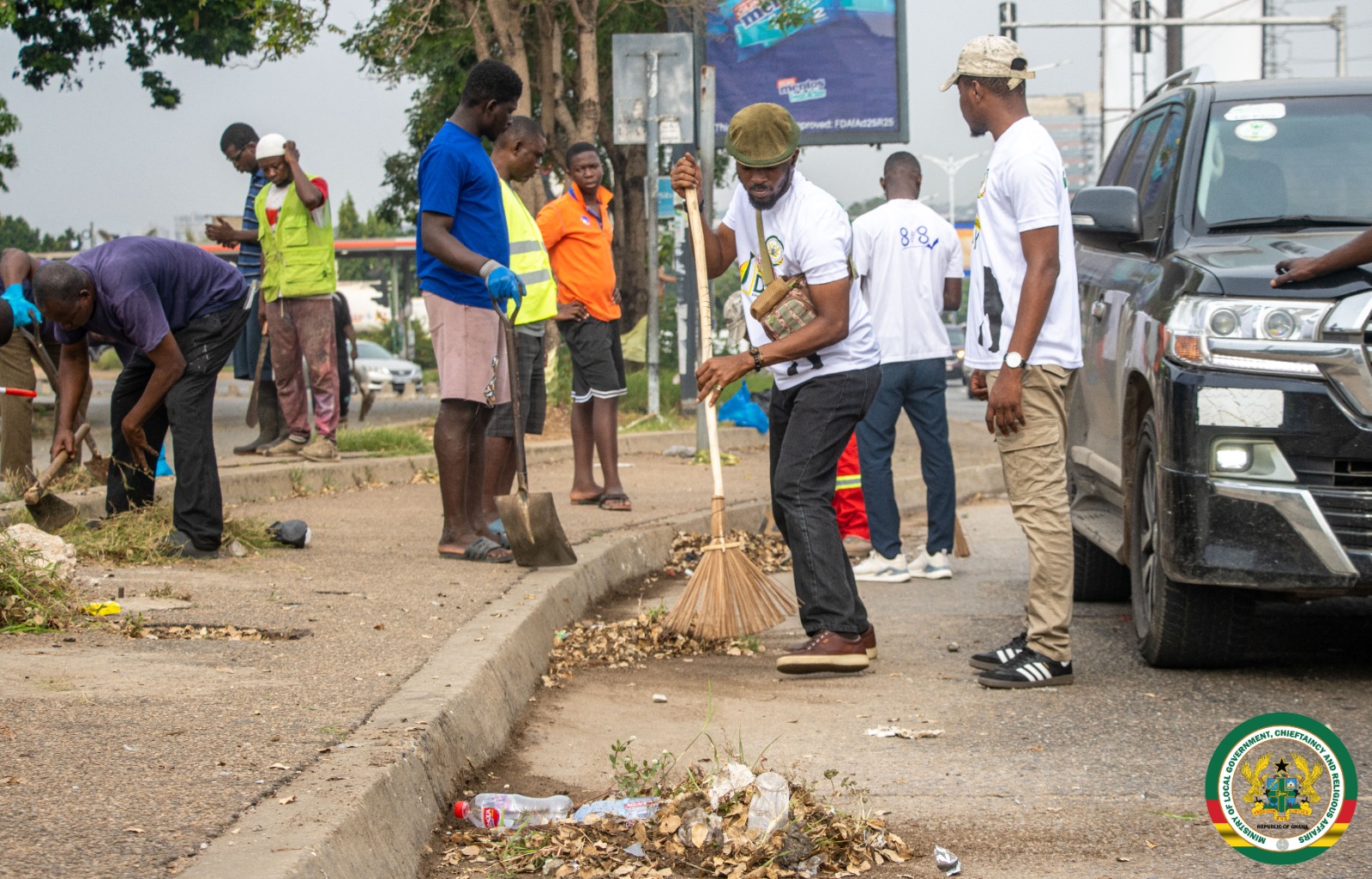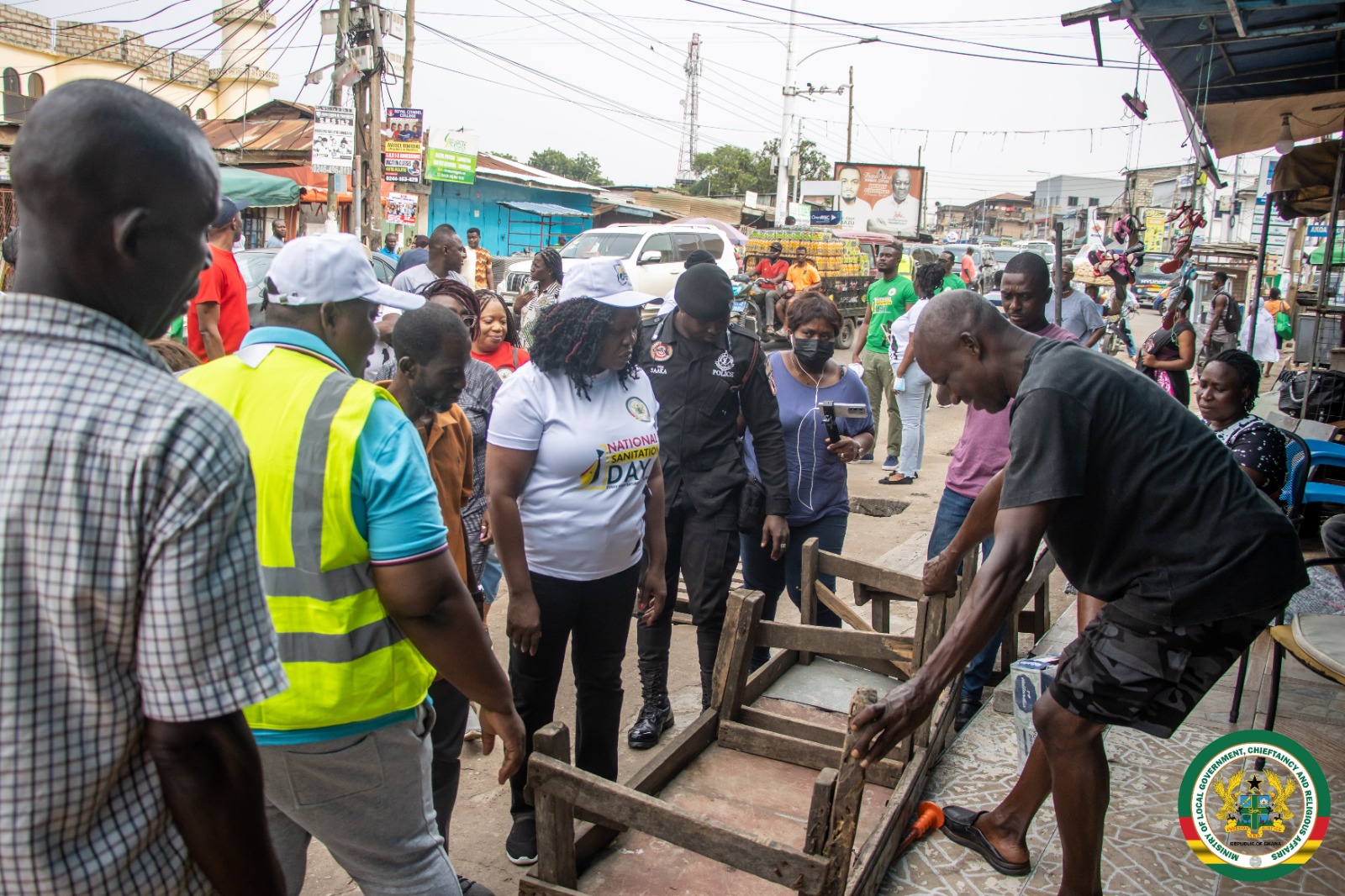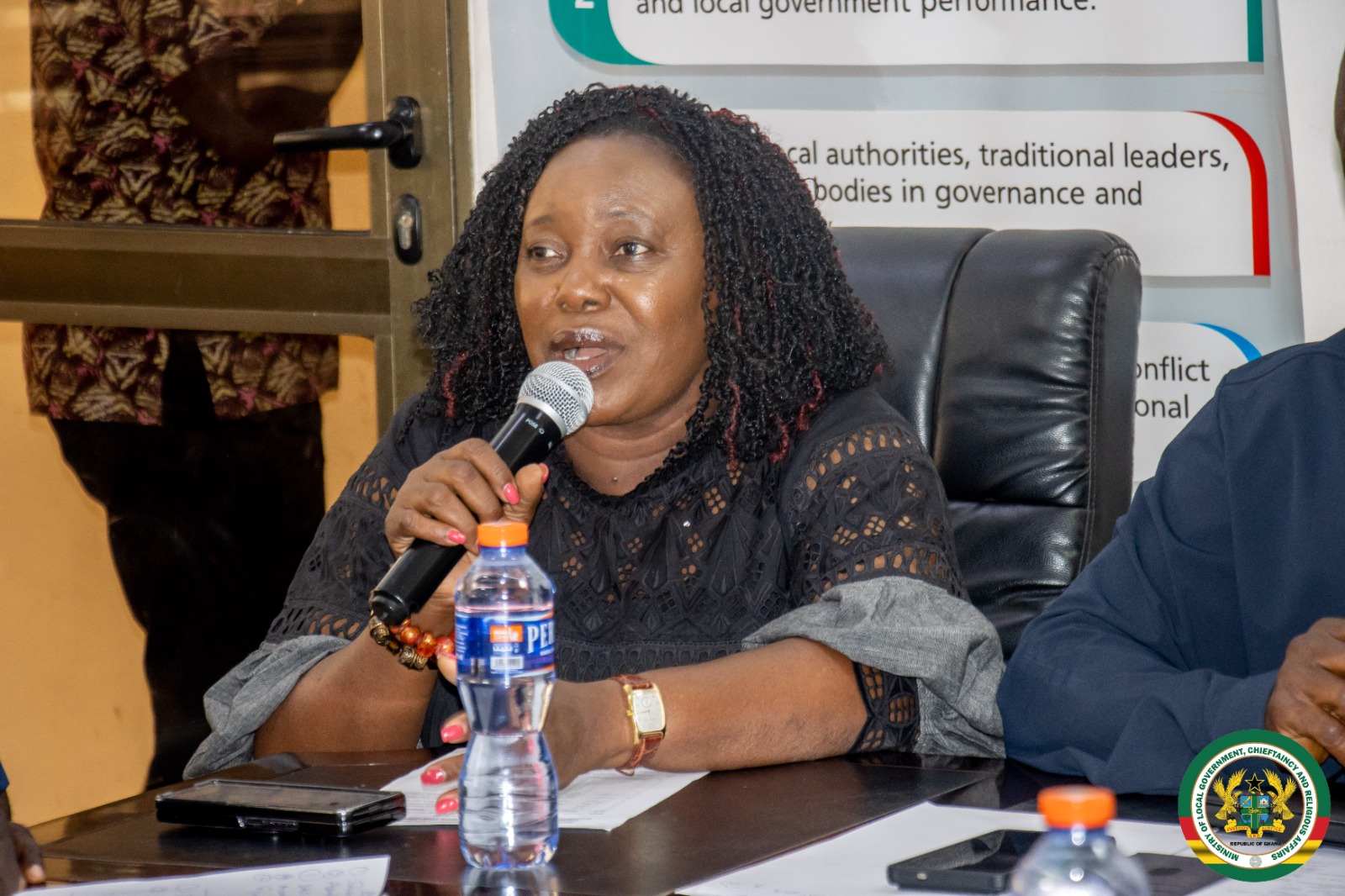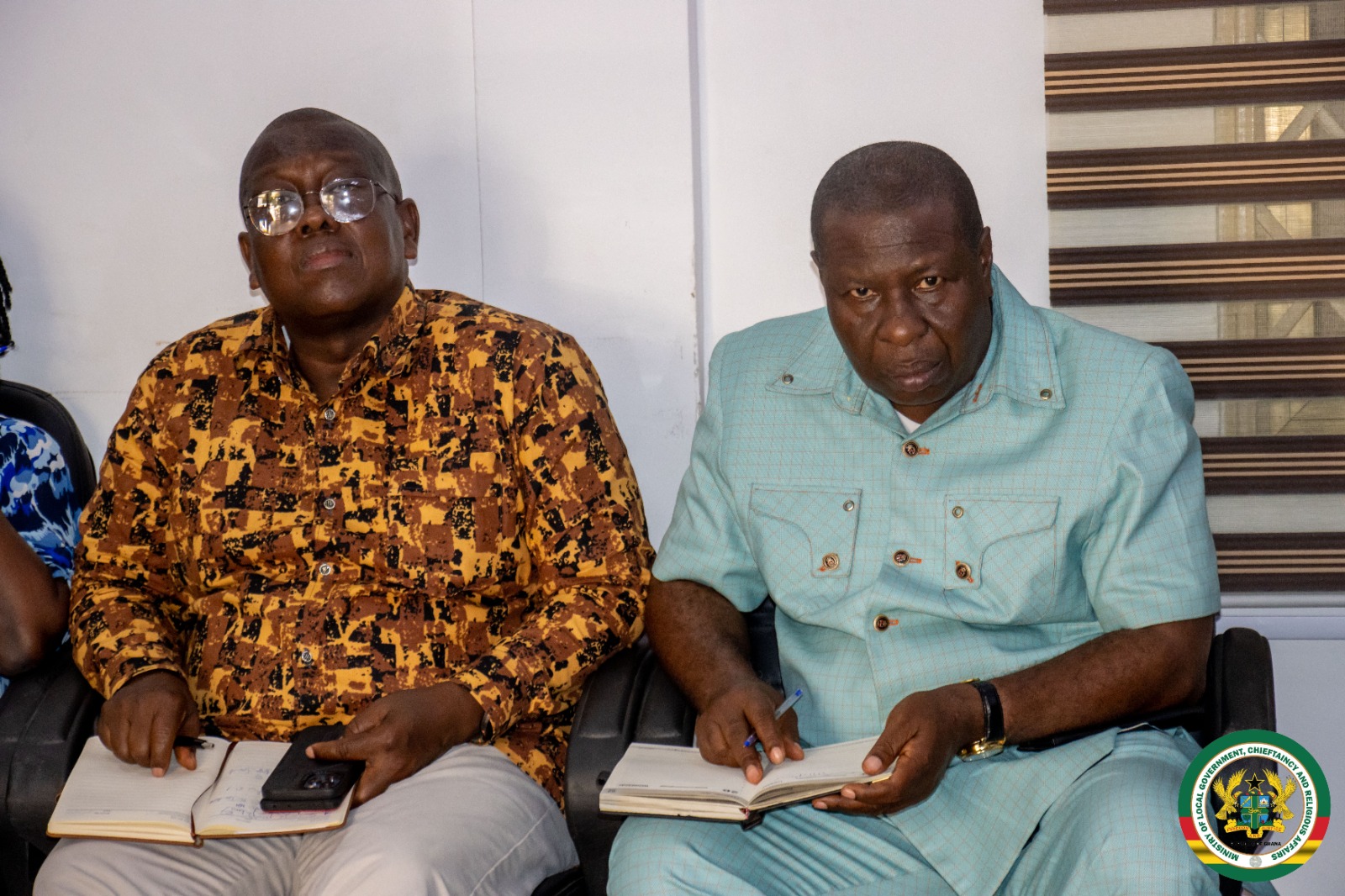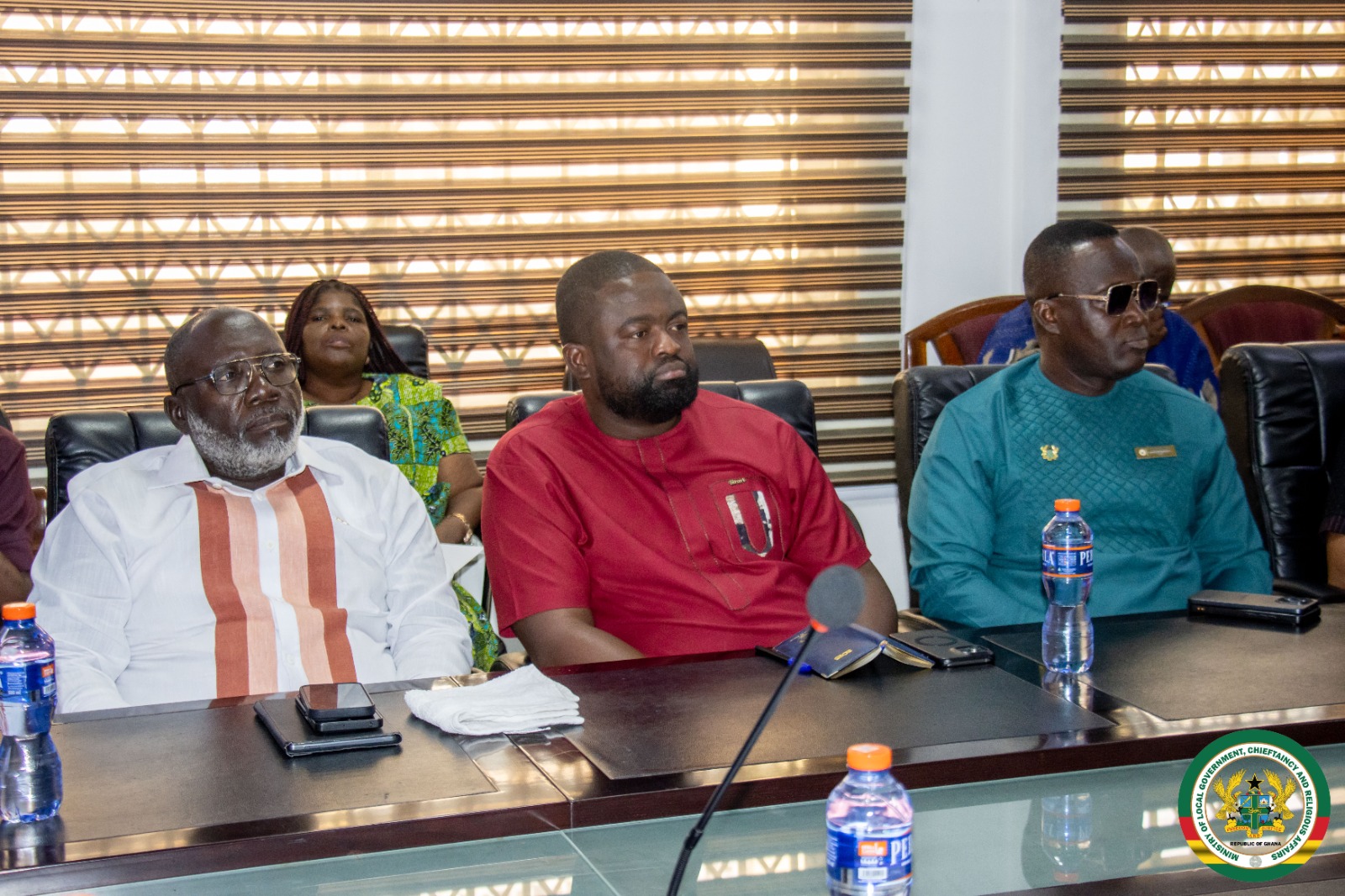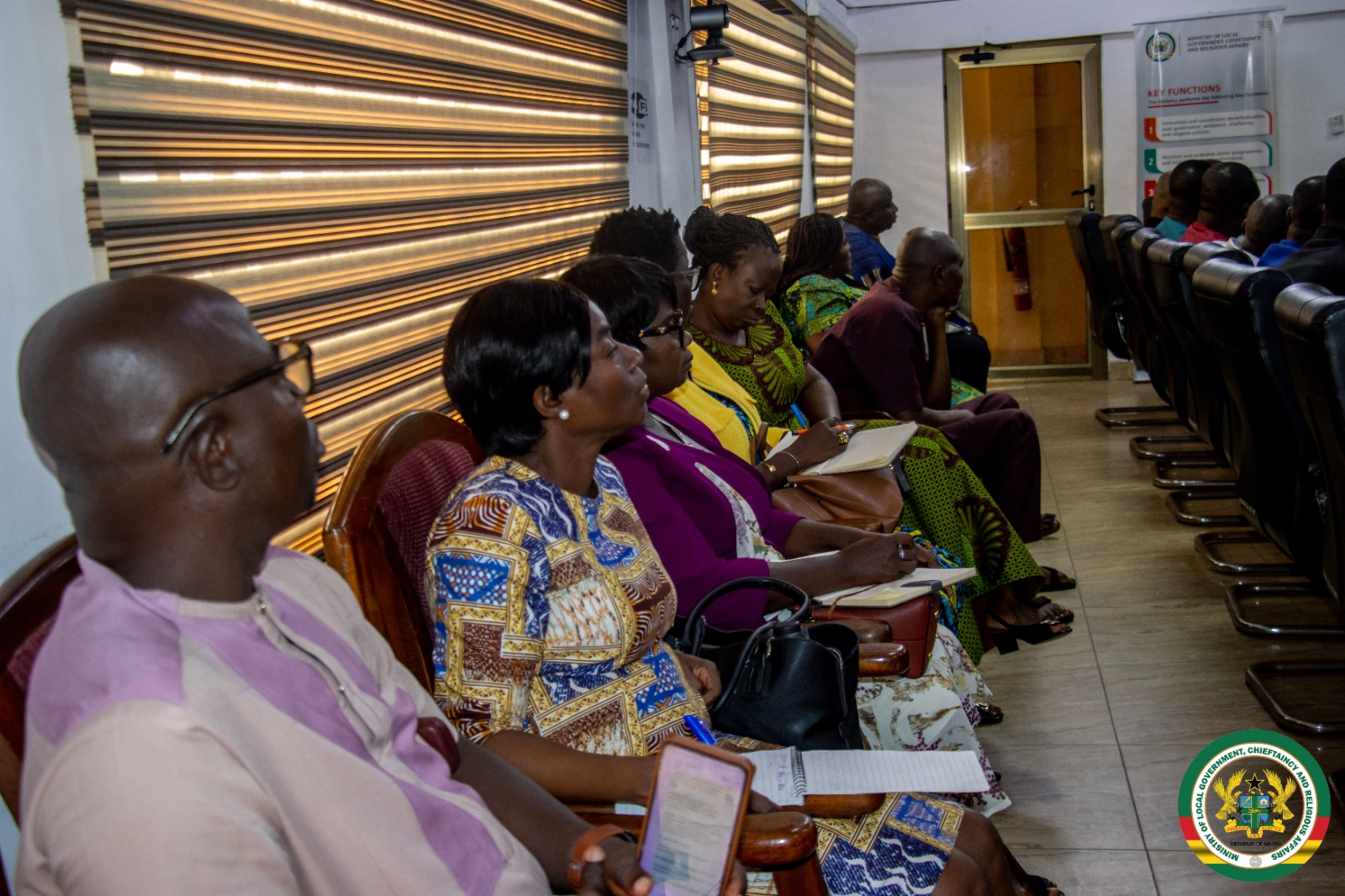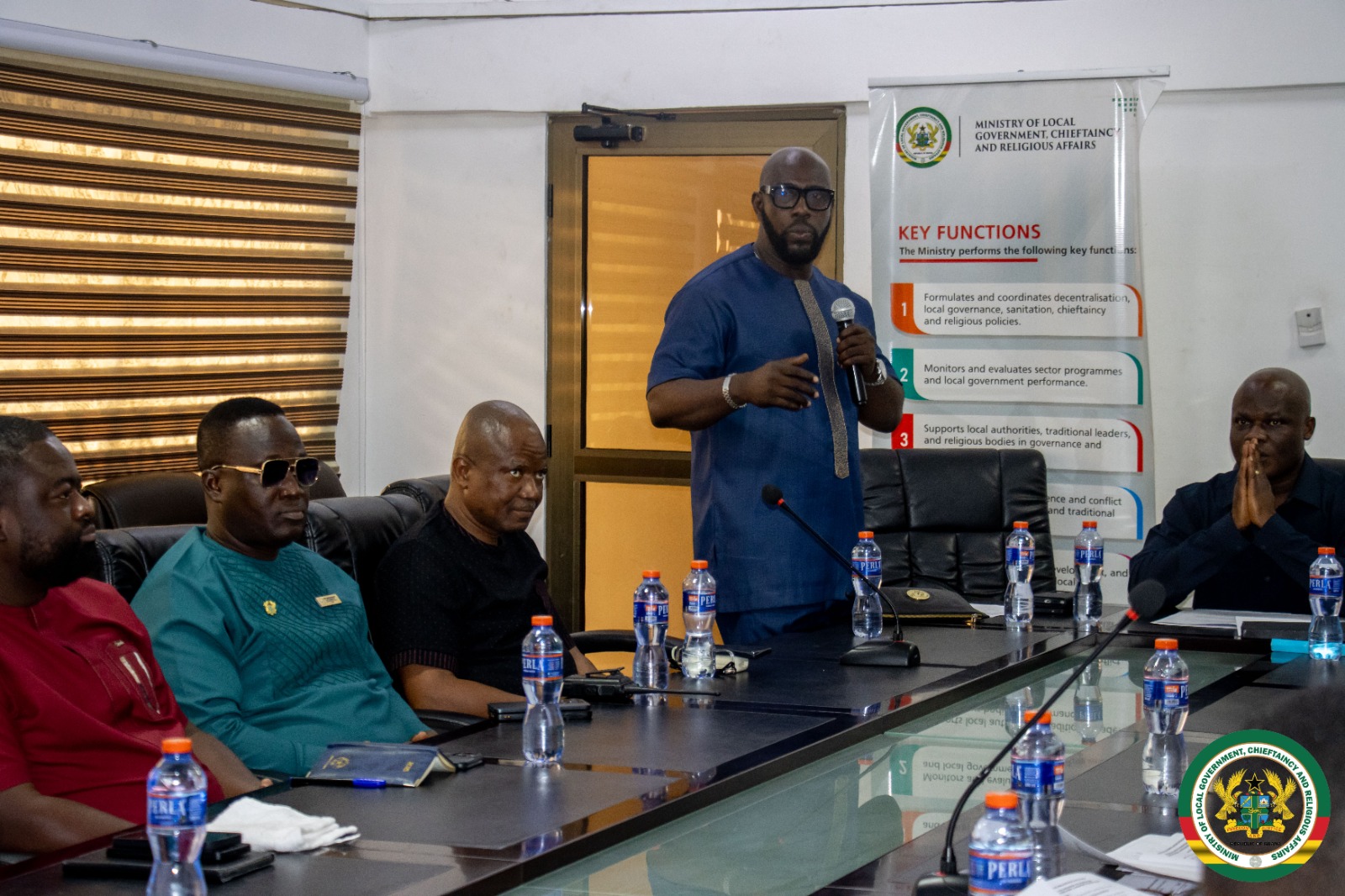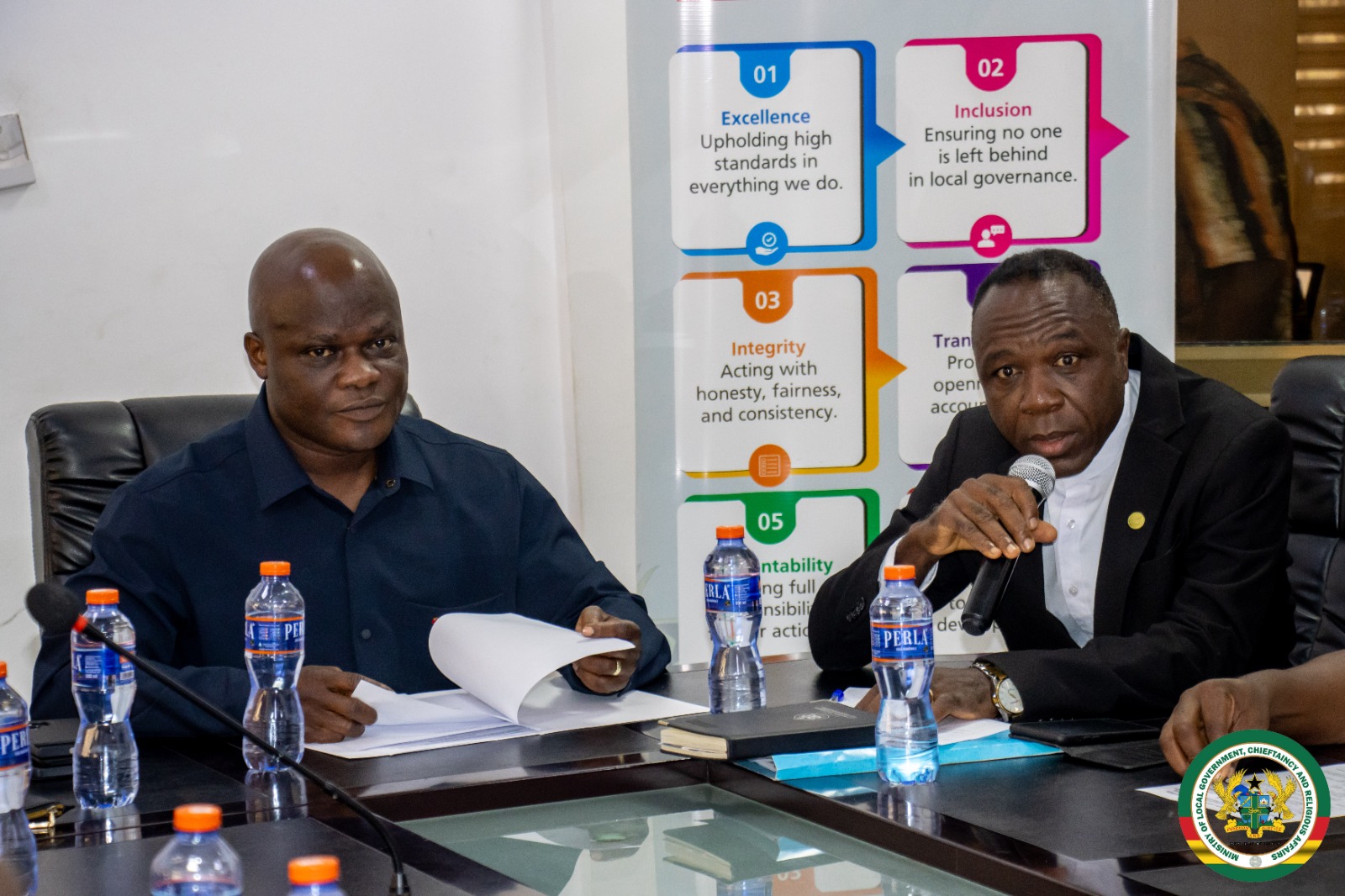Metropolitan, Municipal and District Assemblies (MMDAs) have been directed to step up sanitation enforcement as government intensifies supervision under the National Sanitation Day initiative, with a renewed focus on accountability, consistency and service delivery at the local level.
The directive followed an unannounced sanitation inspection exercise conducted on Saturday, 13th December 2025, across selected assemblies in the Greater Accra Region, led by the Minister for Local Government, Chieftaincy and Religious Affairs, Hon. Ahmed Ibrahim, in line with the Ministry’s oversight responsibility over local government administration.
The exercise, which took the Minister and his team through Ayawaso East and West, Ayawaso West Wuogon, La Nkwatanang, Madina and the Adenta Municipal Assembly, formed part of activities marking the observance of the National Sanitation Day declared by President John Dramani Mahama and being implemented nationwide by the Ministry.
Hon. Ahmed Ibrahim explained that the Ministry has deliberately moved away from pre-announced inspections, which often result in temporary clean-ups that do not reflect everyday sanitation conditions. He said the new approach is intended to ensure that MMDAs remain consistently alert and proactive in the discharge of their sanitation mandate.
According to the Minister, sanitation is a core responsibility of the assemblies, and leadership at the local level must translate into visible cleanliness, order and public health outcomes. He cautioned that any MMDCE found absent during such unannounced visits would be considered not to be on top of the job.
As part of immediate measures under the National Sanitation Day framework, Hon. Ahmed Ibrahim announced the full deployment of borla taxis, functional sweepers and sanitation trucks. He further revealed that the Christmas sanitation clean-up, introduced as a special holiday edition, will now be carried out weekly ahead of the Christmas festivities to ensure sustained cleanliness across cities and communities.
The Minister also announced plans to deepen inter-ministerial collaboration by bringing on board the Ministries of Interior, Tourism, Transport and Health, to support the nationwide sanitation effort.
He underscored the role of the media as a critical accountability partner and noted that government must be intentional and deliberate in enforcing sanitation standards, in line with the reset agenda of President John Dramani Mahama.
The Minister for Tourism, Culture and Creative Arts, Hon. Dzifa Gomashie, who joined the exercise, stressed that sanitation directly affects Ghana’s image and tourism potential.
“We cannot promote a dirty country. We can only promote a country that is clean,” she said, explaining that what visitors encounter first is not hospitality or culture, but the state of the streets.
She described the collaboration with the Ministry of Local Government, Chieftaincy and Religious Affairs as essential, noting that the work of MMDAs reflects directly on the tourism sector and the country’s global reputation. She emphasized that sanitation is a shared responsibility that requires the collective effort of ministries, assemblies and citizens.
Appealing to the public, Hon. Gomashie urged Ghanaians to take daily responsibility for their surroundings, calling on traders and roadside sellers to keep their spaces clean and allow access for pedestrians to ease congestion and improve urban life.
The Deputy Minister for Local Government, Chieftaincy and Religious Affairs, Hon. Rita Naa Odoley Sowah, also reinforced the call, urging MMDAs, market women and traders to uphold cleanliness as part of the ongoing observance of the National Sanitation Day.
She noted that clean markets and streets attract visitors, boost patronage and contribute to economic growth.
The Ministry reiterated that sanitation is a collective national duty and called on all assemblies and citizens to work together to keep Ghana clean, healthy and ready for the festive season.
Source: Darling Maame Efua Cann
MLGCRA PR Unit

